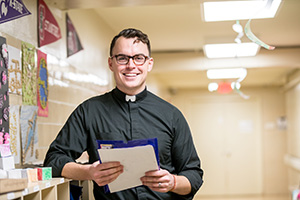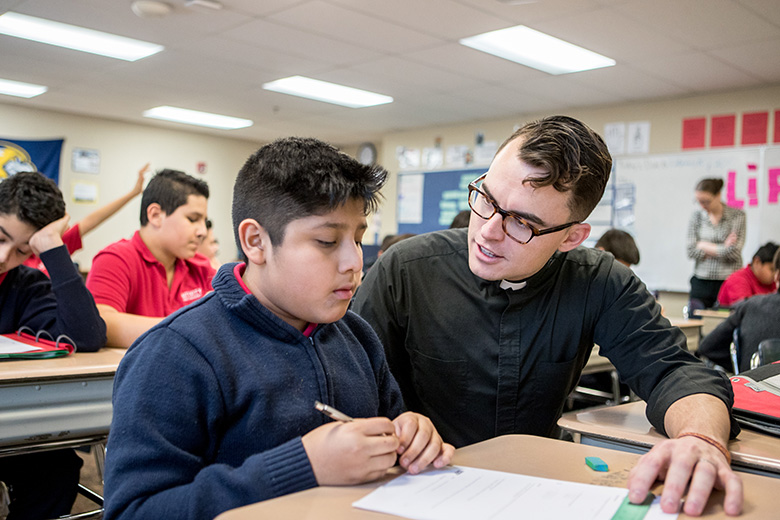By Br. Matt Wooters, SJ

|
|
| Br. Matt Wooters, SJ |
|
I was living and working with migrants in Mexico. The meeting — the first of its kind in the Americas — was particularly significant in the age of our first Latin American pope and shortly before the election of our first Latin American Superior General, Fr. Arturo Sosa, SJ. In fact, Fr. Sosa attributes his vocation to the hard work and holiness of Jesuit brothers.
In true Latin American style, I was welcomed with open arms and an abrazote — a big hug! It was a privilege to join 30 other young brothers from nine Latin American provinces to pray, honor the past, dream about the future, and discuss the graces, challenges, and uniqueness of being a 21st century Jesuit brother.Brothers once made up nearly 30 percent of the Society of Jesus but now constitute less than 5 percent. We have been part of the Society since it began. To quote former Superior General Peter-Hans Kolvenbach, SJ, the "religious brother embodies religious life in its essence, and so is able to illustrate that life with particular clarity."
|
|
I WAS MOVED BY THE MULTITUDE OF COMMONALITIES DISCOVERED DURING THE CONFERENCE. |
Despite differences in cultures, languages, and work, I was moved by the multitude of commonalities discovered during the conference. We were asked to articulate what makes our vocations unique and prophetic in the modern era and shared nearly identical answers: closeness to the poor, indigenous, and people of other faiths; an emphasis on building community in and outside of the Society; simplicity in lifestyle; and a certain gozo para vivir, or joy of living.

|
| Br. Matt Wooters, SJ, began working at Nativity Jesuit Academy in Milwaukee after living and working with migrants in Mexico last year. Photo: Jeff Zmania |
Brothers have a special closeness to people who may feel intimidated or far from the Church. This is especially true in Latin America, where priests are treated with a deference that sometimes puts them on a pedestal. Aldo, a Mexican brother, expressed beautifully what it means to be a Jesuit brother: “He is someone who recognizes that in the world there is a chronic pain that he identifies with his own pain. It is a pain that breaks with this model of love. In the world, there is a great thirst, and he not only desires to orient his life in function of this love but also to fully surrender his life to heal this pain of the world, to communicate this love to others, and to communicate to others this journey of love.”
I was honored to join my brothers from the Americas over cups of coffee and maté, speaking English, Spanish, Guarani, and Portuguese as we spent a week praying, laughing, and giving thanks for the gifts of our vocations and the gifts of each other.
Br. Matt Wooters, SJ, is a Jesuit regent and
social worker at Nativity Jesuit Academy in Milwaukee.
Click here for the Spring 2017 Jesuits magazine index.